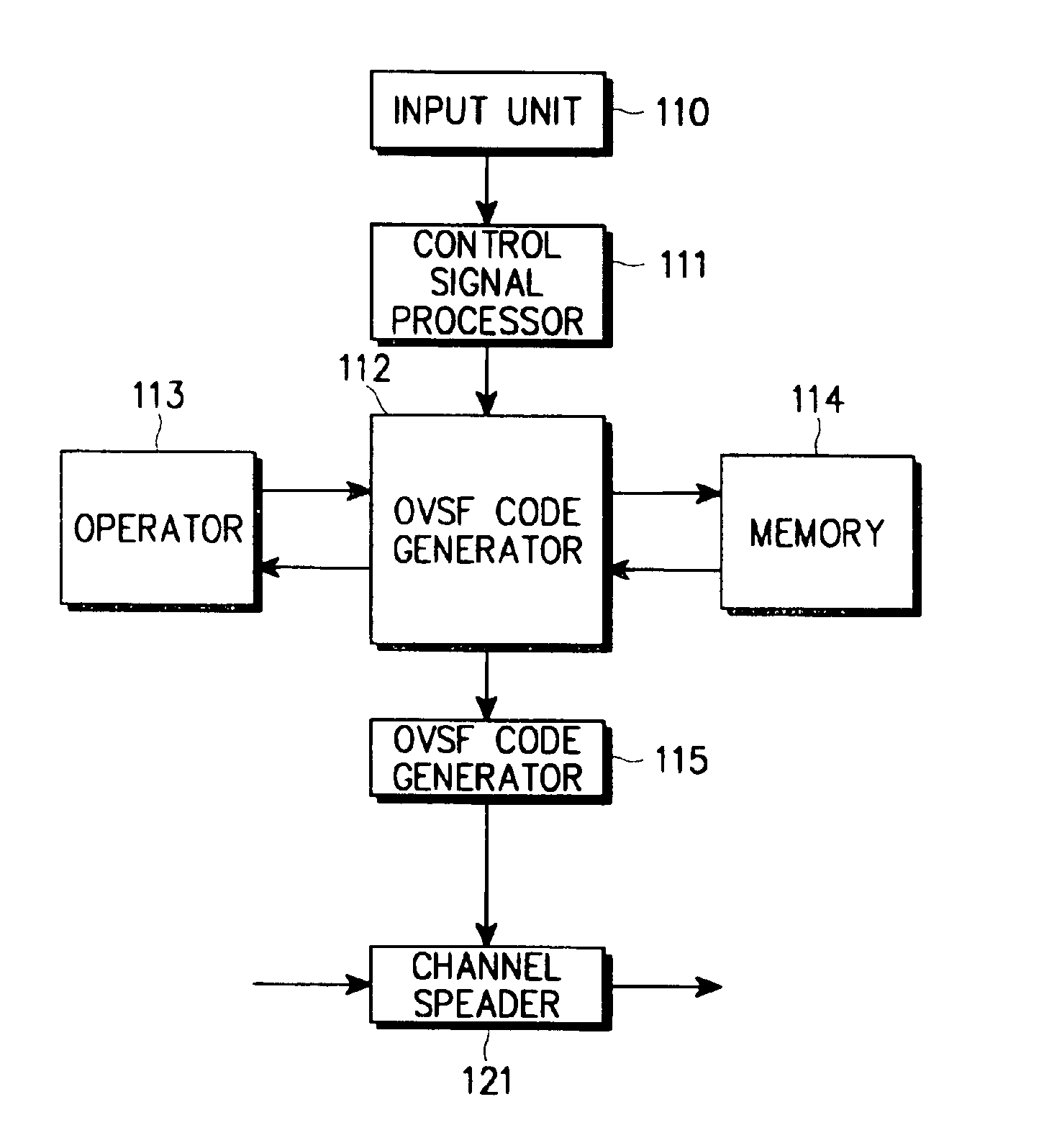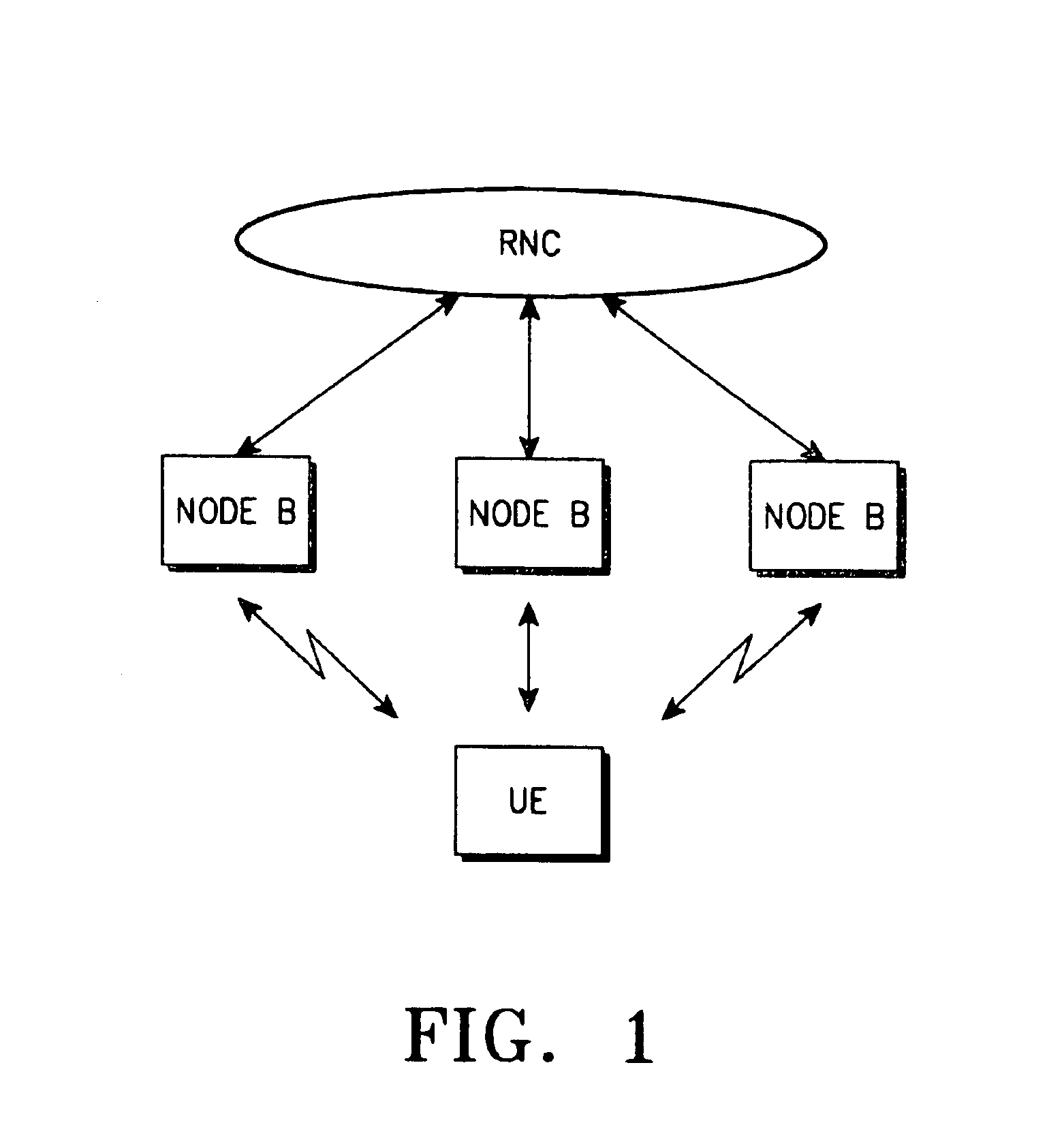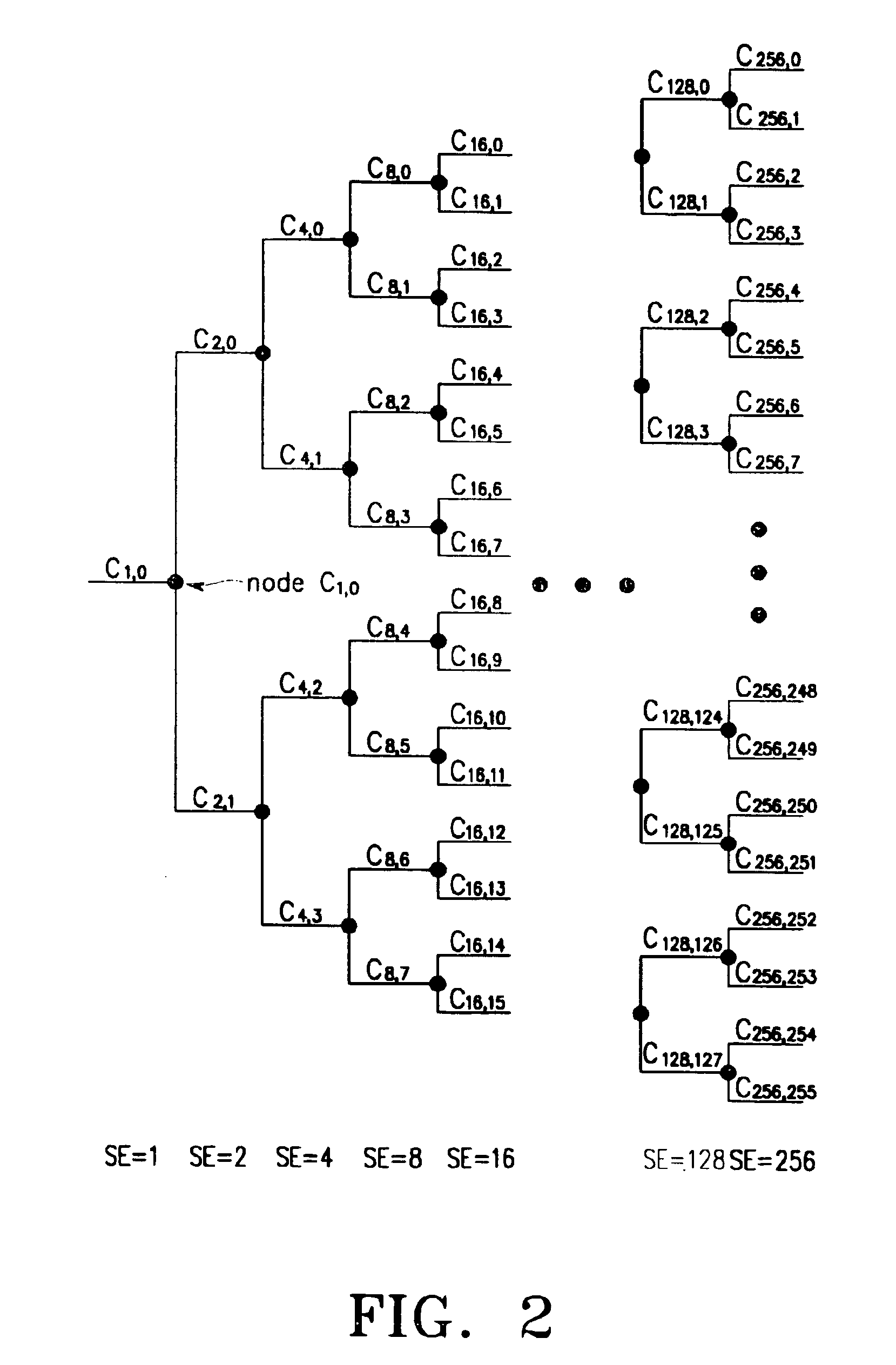Apparatus and method for allocating channel using OVSF code for uplink synchronous transmission scheme in a W-CDMA communication system
a communication system and synchronous transmission technology, applied in the field of channel communication apparatus and method for cdma communication system, can solve the problems of inability to allocate the child nodes of the allocated specific node simultaneously, the conventional ovsf code allocation method has a limitation on the use of ovsf code, and the channel allocation resources are short, so as to achieve efficient allocation of channels
- Summary
- Abstract
- Description
- Claims
- Application Information
AI Technical Summary
Benefits of technology
Problems solved by technology
Method used
Image
Examples
first embodiment
[0060
[0061]First, a sub-tree of a C4,3 node which is one of the nodes with SF=4 is allocated to the control part. Although the C4,3 node is allocated to the control part in the following description, it is also possible to selectively allocate one of the nodes C4,0, C4,1 and C4,2 other than the node C4,3 out of the SF=4 nodes to the control part. Since the nodes existing in the sub-tree of the C4,3 node are allocated to the control part, they are not allocated for the data part. Instead, the 12 SF=64 nodes C64,52, C64,53, C64,54, . . . , C64,63 are defined as nodes for the control part (or control part nodes). A definition of one-to-one mapping between the control part nodes C64,52, C64,53, C64,54, . . . , C64,63 and SF=16 data part nodes C16,0, C16,1, C16,2, . . . , C16,11 will be given. Here, the node mapping is performed using a mapping function F1(Cdata,16,k)=Ccontrol,64,63−k (0≦k≦11), where Cdata,16,k denotes node C16,k for the data part and Ccontrol,64,63−k denotes a node C64,...
second embodiment
[0080
[0081]The second embodiment is considered for the case where SF=256 is allocated for the control part, and SF=4, SF=8, SF=16, SF=32, SF=64, SF=128 and SF=256 are allocable for the data part. Here, even when SF=32, SF=64, SF=128 and SF=256 can be allocated for the data part as in the RACH (Random Access Channel), it is possible to use the mapping rule for the data part and the control part by using the following rule. As in the first embodiment where SF for the control part is 64, even when SF for the control part is 256, a sub-tree of any one of SF=4 nodes is used for the control part. For convenience, this node will be assumed to be C4,4. A normal mapping rule for the 48 SF=64 nodes and 48 SF=256 nodes for the data part is defined as follows.
[0082]
F5(Cdata,64,k)=Ccontrol,256,255−k
[0083]According to Rule 5, Cdata,64,k nodes for the data part are allocated to Ccontrol,256,256−k nodes for the control part as shown in Table 4 below.
[0084]
TABLE 4Data PartControl PartSF = 4SF = 8SF ...
third embodiment
[0113
[0114]Next, a third embodiment of the present invention will be described. Since the UEs using the USTS (Uplink Synchronous Transmission Scheme) has a property of a low mobility, it is possible to limit the spreading factor (SF) to a specific value. Accordingly, in this embodiment, it is assumed that SF of the DPDCH (i.e., SF of the data part) in the UE employing one USTS is fixed to one value.
[0115]In this embodiment, SF=256 is allocated for the DPDCH (or control part) and one of SF=4, SF=8, SF=16, SF=32, SF=64, SF=128 and SF=256 is variably allocated for the DPDCH (or data part). First, the DPDCH defines mapping from the frontmost end in the OVSF tree architecture out of the nodes with the set SF, and then, the DPCCH defines mapping from the rearmost end in the OVSF tree architecture out of the SF=256 nodes. That is, a mapping function of F11(Cdata,SF,k)=Ccontrol,256,255−k(0≦k≦11) is used. In this case, it is possible to know the maximum number of the allocable nodes in one O...
PUM
 Login to View More
Login to View More Abstract
Description
Claims
Application Information
 Login to View More
Login to View More - R&D
- Intellectual Property
- Life Sciences
- Materials
- Tech Scout
- Unparalleled Data Quality
- Higher Quality Content
- 60% Fewer Hallucinations
Browse by: Latest US Patents, China's latest patents, Technical Efficacy Thesaurus, Application Domain, Technology Topic, Popular Technical Reports.
© 2025 PatSnap. All rights reserved.Legal|Privacy policy|Modern Slavery Act Transparency Statement|Sitemap|About US| Contact US: help@patsnap.com



